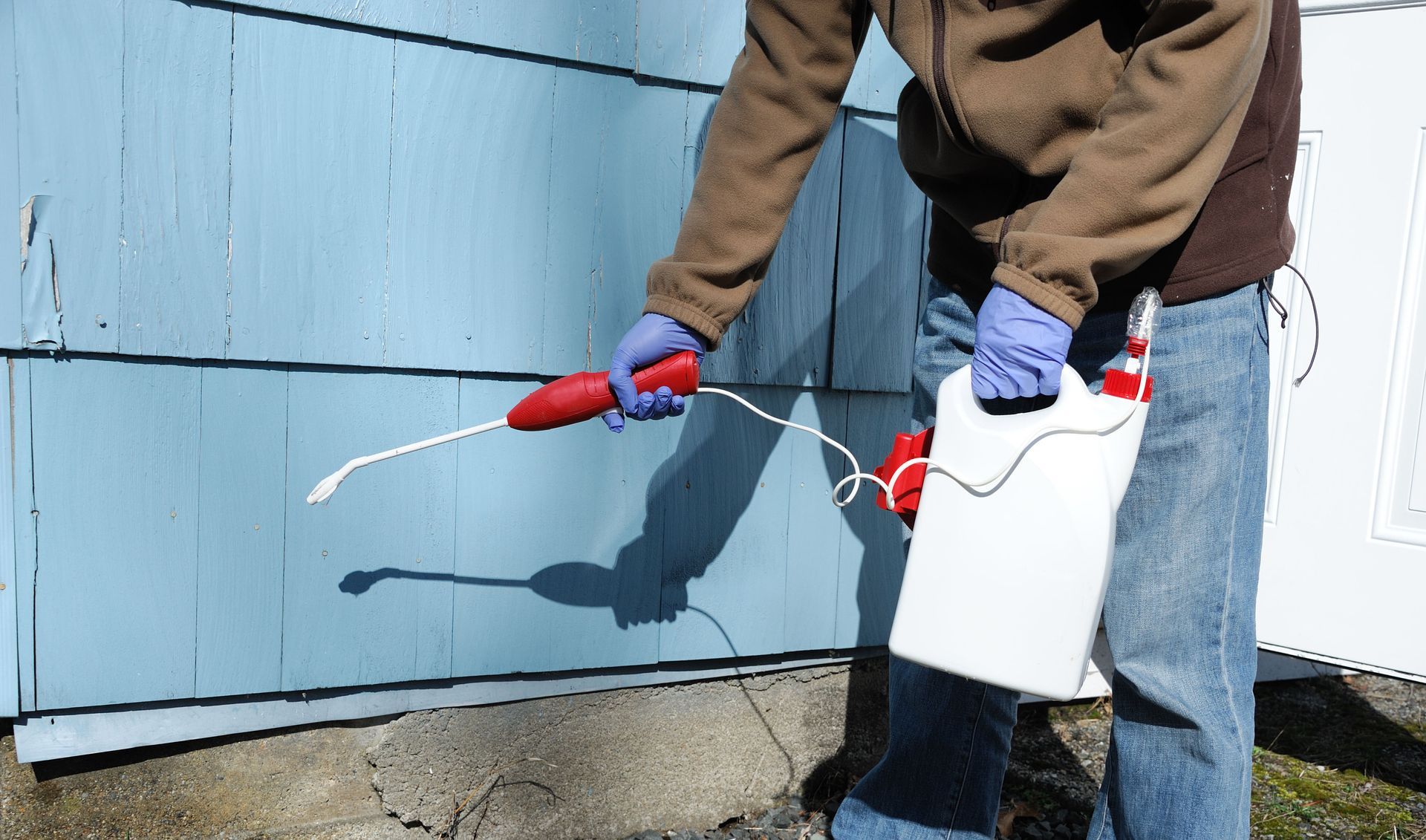September 2, 2025
Orange oil termite treatments have gained popularity as a natural alternative to traditional chemical fumigation methods. In this article, we delve into what orange oil treatments entail, their effectiveness, and important considerations for homeowners. The aim is to equip you with the knowledge needed to make informed decisions about protecting your home from termite infestations. Before opting for any pest control solutions, understanding the options available and their impact on your home and environment is crucial. This comprehensive guide provides insights into the working mechanism, benefits, and potential downsides of using orange oil termite control.
Understanding Orange Oil as a Termite Treatment
Explaining Orange Oil
Firstly, orange oil is derived from the peels of oranges, specifically extracted during the process of pressing the peel. This oil is predominantly made up of d-limonene, a chemical compound that gives citrus fruits their characteristic scent. Historically, d-limonene has been used in a variety of products ranging from cleaning agents to industrial solvents. The versatility and natural origin of orange oil have made it an appealing option for those seeking non-toxic solutions with orange oil termite control. Its pleasant aroma and biodegradability add to its attractiveness as an alternative to synthetic chemicals.
Working Against Termites
The primary component of orange oil, d-limonene, is known for its insecticidal properties. According to the U.S. Department of Agriculture, orange oil extract contains about 92% d-limonene, which is toxic to several species of insects, including termites. When applied to termite-infested areas, orange oil disrupts the biological systems of these pests, often resulting in their death. Its mechanism involves dissolving the exoskeleton of the insects while also causing internal damage, effectively eliminating them. This makes orange oil a potent weapon against termites without relying on synthetic chemicals.
Knowing the History and Origin of Orange Oil Treatments
The history of using orange oil as a termite treatment dates back several decades. It was initially recognized for its effectiveness in the 1940s and has since been researched and improved upon. In regions where citrus fruits are abundant, orange oil treatments were primarily adopted due to their local availability and natural efficacy. Over time, as awareness about the environmental impacts of chemical treatments increased, interest in orange oil solutions grew as a safer alternative. The evolution of its application techniques has made it a competitive option in pest management fields.
Standing Out as a Key Ingredient
D-limonene stands out as the key active ingredient, making orange oil effective against termites. Found naturally in citrus fruits, it is among the most abundant terpenes used in pest control. Its effectiveness is underpinned by its ability to act as a neurotoxin to insects, targeting their nervous systems and respiratory pathways. Beyond its insecticidal properties, d-limonene is also favored for its low toxicity to humans. Despite its benefits, there remain considerations about its efficacy depending on the extent of termite infestations.
Researching the Effectiveness of Orange Oil Treatments
Reviewing Field Studies and Research Findings
Numerous field studies have been conducted to understand the efficacy of orange oil termite control. Research has often highlighted the variability in results depending on the type of termite species and infestation scale. Studies indicate that orange oil can effectively eliminate drywood termite colonies when applied correctly. Furthermore, it serves as a preventative measure, discouraging new infestations due to d-limonene's lasting presence. However, challenges in accessing deep colonies persist, requiring more comprehensive applications.
Providing a Success Rate in Different Types of Infestations
Additionally, the success rate of orange oil treatments varies based on the severity and type of termite infestation. For localized infestations, especially those accessible to direct application, orange oil proves highly effective. In contrast, for subterranean termites or extensive, hidden colonies, its effectiveness can be limited. The nature of orange oil as a topical treatment means that it requires precision and thorough application. Success hinges on correctly identifying and targeting infested areas to achieve optimal results.
Having Limitations and Challenges
One significant limitation of orange oil treatments is their applicability to only certain infestation types. The requirement for direct application often restricts its use in scenarios of widespread structural infestations. Moreover, the penetration ability of orange oil is limited compared to fumigation methods, which can challenge its effectiveness against deeply entrenched termite nests. Climate and environmental conditions can also impact the efficacy of the treatment. Homeowners must be informed of these challenges to set realistic expectations of treatment outcomes.
Studying Case Studies
Homeowner experiences with orange oil termite control vary widely. In many cases, users report satisfaction with reduced termite activity and appreciate the non-toxic nature of the treatment. For example, several case studies reveal successful management of detected infestations in residential settings, with no adverse effects on residents or pets. However, testimonials often indicate the need for follow-up applications or complementary protection strategies. Overall, the anecdotal evidence suggests that while orange oil effectively tackles certain scenarios, it may not be a standalone solution for severe cases.
Learning the Pros and Cons of Orange Oil Treatments
Impacting the Environment and Sustainability
Orange oil treatments are celebrated for their reduced environmental footprint compared to conventional fumigation. The natural origins and biodegradability of d-limonene contribute to its sustainability, lessening pollution concerns associated with toxic pesticides. Furthermore, orange oil minimizes risks to non-target organisms, promoting ecological balance. While beneficial, the broad leaf citrus industry's influence on cultivating oranges for oil raises questions about the sustainability of large-scale production. Conscious attention to supply sources and agricultural practices remains crucial in maintaining this environmentally friendly profile.
Promoting Safety for Humans and Pets
Safety is a significant advantage of adopting orange oil termite control. Unlike many chemical pesticides, orange oil's low toxicity levels protect residents and pets from adverse effects during application. Additionally, there is no need for evacuation during its treatment process, offering convenience and peace of mind. However, care must still be taken as irritation may occur on skin contact, necessitating the use of protective gear for applicators. The relative safety significantly expands its appeal to health-conscious homeowners seeking a balance between effective pest control and household well-being.
Considering Cost-Effectiveness
Cost analyses indicate that orange oil treatments can offer economic benefits, particularly for smaller-scale, targeted interventions. While possibly more labor-intensive, the avoidance of price that accompanies large-scale fumigation presents potential savings. The need for specialized application tools may incur additional initial expenses, but generally equilibrates over multiple use cases. Economic implications are further influenced by reduced environmental liability and health-related costs. Homeowners must weigh initial expenditures against the comprehensive value provided by orange oil’s sustainable profile.
Saving Time
The application process for orange oil treatments is generally more laborious compared to fumigation, but it avoids extensive preparatory requirements. The time spent in identifying infested areas is offset by the absence of waiting for reoccupation post-treatment. Immediate effects on termite activity can often be observed, although monitoring over time is essential to maintain efficacy. Homeowners frequently value this immediacy, especially when addressing localized infestation without major disruptions. Despite time investments in a detailed application, the benefits align with a systematic approach to termite management.
Orange oil termite control treatments offer a promising alternative for homeowners seeking less toxic pest control methods. While they may not be universally suitable for all types of infestations, understanding their scope, advantages, and limitations is crucial. Call Eliminite Termite Services today to learn more about our treatments.










